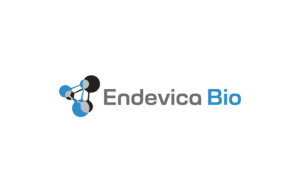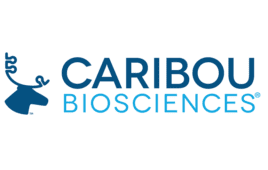 LeAnn Kuhlmann-Qi is the chief commercial officer of Columbia, Missouri–based Endevica Bio. The company’s lead drug candidate is TCMCB07, a peptide melanocortin-4 antagonist for cachexia stemming from cancer and other chronic conditions.
LeAnn Kuhlmann-Qi is the chief commercial officer of Columbia, Missouri–based Endevica Bio. The company’s lead drug candidate is TCMCB07, a peptide melanocortin-4 antagonist for cachexia stemming from cancer and other chronic conditions.
Holding an MBA. from the University of Missouri, Kuhlmann-Qi has extensive experience managing the business aspects of early-stage biotechnology companies. She is also the co-owner of Cell Origins LLC, which offers phage display laboratory services to researchers.
In the following interview that belongs to our ongoing Women in Pharma and Biotech series, Kuhlmann-Qi explains how she got into industry, describes her work on TCMCB07 and touches on what it is like to be a female executive in the male-dominated pharmaceutical industry.
The responses have been lightly edited.
What initially attracted you to the pharmaceutical industry?

Leann Kuhlmann-Qi
Kuhlmann-Qi: I got into the industry honestly by accident. I have an undergrad in social work, and I felt like business is a great avenue to do social good. When I went back to school to get my MBA, I had an entrepreneurship class where I helped a small drug development company. I got really hooked.
What is the most rewarding project you’ve been involved with in your career?
Kuhlmann-Qi: I’m working on a drug called TCMCB07 with Endevica Bio. It’s a cachexia drug for cancer patients. And so I’ve been working on this drug for six years through early-stage development through getting our IND. For the past several months, we’ve been working on a Phase 1 clinical trial. There was nothing like the thrill of hearing that the Phase 1 site had completed the dosing in the high-dose group and that it went well. There were no serious side effects.
That’s one of my favorite projects I’ve worked on recently at Endevica Bio because I poured so much of myself into it. The team and I got to celebrate together. We’ve got a great team. I love working with people who love their work.
There are few treatment options for the wasting syndrome cachexia, right?
Kuhlmann-Qi: There’s nothing approved for the treatment and cachexia, which is just debilitating. People lose muscle mass and the physical ability. My grandfather passed away several years ago, but at the end of his life, he had cachexia. He was this 6’2” 200-pound farmer before who just kept losing weight.
With TCMCB07, the potential is so great to help people recover and feel better as they go through significant illness.
How long has helping people been a guiding principle of yours?
Kuhlmann-Qi: I think it’s been a theme for as long as I can remember.
I’m a first-generation college graduate in my family. When I was an undergrad, I was considering three options — becoming a psychologist, social worker or doctor. I decided to go into social work.
It’s interesting how your life takes these different paths. Sometimes you end up somewhere you didn’t expect to be at the beginning.
I’m also a foster parent. I just recently adopted a child out of foster care. I guess it is a life mission to help others.
What’s your assessment of what it’s like to be a female executive in the pharmaceutical industry?
Kuhlmann-Qi: Some of my prior jobs were in more female-dominated areas. When I would go to conferences in the past, there’d be women everywhere.
It was incredibly shocking when I went to my first pharma business development conference. There were men everywhere. After going to about 10 meetings, I sat across from a woman. She said, ‘Hey, you’re the first female I’ve seen today!’ There’s almost an instant camaraderie to meet a woman at an event like that.
But I think there’s a lot of people working on this problem, and thinking about how we can have more women in this space. There’s a push to have more female board members at pharma and biotech companies. I definitely see that there are strides being made, but I think it’s a slow journey.
What are your thoughts on how to encourage more young women to enter the field?
Kuhlmann-Qi: I’ve been thinking about that a little bit. My daughter is four and my son is two. We’ve had some emergency room visits of late and they both are very interested in being doctors. They keep talking about it. At the hospital over Christmas, I noticed my daughter told someone, ‘I want to be a doctor when I grow up.’ The person responded to her. ‘Oh, that’s great honey. You can definitely be a nurse or a doctor.’ But my daughter had never mentioned being a nurse. There’s nothing wrong with being a nurse, but nobody said that to my son when he said he wanted to be a doctor.
When I heard that comment someone said to my daughter, my ears automatically lit up. I feel like, as a mother, I have my eyes on this issue. I want my daughter to pursue whatever gifts, passions and dreams she has. I want to help her filter out any negative voices.
In terms of the broader question of how we can promote women in pharma, I feel like there’s a lot being done. There are people in positions of power in pharma who do have a vision of promoting women. They do care about making sure that women have a voice.
If those people can be identified and empowered to use their voice for good, I think that would be a great step. Sometimes, it’s hard to get a rock to move. Some people aren’t very willing to change but if somebody’s already moving in that direction, you can help them even more.
What projects do you look forward to?
Kuhlmann-Qi: One thing I’ve discovered about myself in the last few years is that my number one hobby is learning new things. That could be some new crafting technique. I also like to compose music. I do all kinds of things. In early-stage drug development, there is just so much to learn. As I’m getting into this Phase 1 clinical trial at Endevica Bio and thinking about a Phase 2, I’m kind of itching for a new project.
What makes a good leader?
Kuhlmann-Qi: There’s always a new leadership challenge every day. One that I’ve been facing with the pandemic is having two young children. Being a mom and a wife and an executive at a drug development company leaves me with so many things to manage and think about.
One thing I’ve been like trying to work on is just my own personal health and well being. I’m investing in my physical, mental and emotional and relational and spiritual health. That helps me have like the fuel I need to give to all the projects and all the things that I need to do.
I also find resources on social media platforms like LinkedIn. I also get a lot of parenting content on platforms like Instagram. In parenting, there’s such a focus on raising emotionally healthy children. How do you raise children who are not just obedient children but who are emotionally healthy? I feel like that’s a huge trend across the board.
In addition, with the pandemic, there were so many people at home and so many people taking care of sick relatives. There’s a lot of teams that are a little bit more in tune to that part. I might email before a meeting that I was supposed to have with my team and say, ‘Hey, my kids are sick.’
I feel like everybody’s really flexible now and it’s okay to talk about the fact that you have an outside life that might need to be addressed. At Endevica Bio, I work from home, and I work all the time. I work at night. I work early in the morning, I work on the weekends. But I feel like I’m being really flexible with work and work is being really flexible with my family. And that’s a really good combo.
Do you imagine that a flexible approach to work will continue in the pharma space?
Kuhlmann-Qi: I think it depends on your role. I’m not working at a bench at Endevica Bio, so it’s easier to have a flexible work schedule. In general, work life is much more flexible than it’s ever been. I think it’s here to stay at least at some level. A lot of people are looking for jobs with that flexibility.
Filed Under: Women in Pharma and Biotech





Tell Us What You Think!
You must be logged in to post a comment.